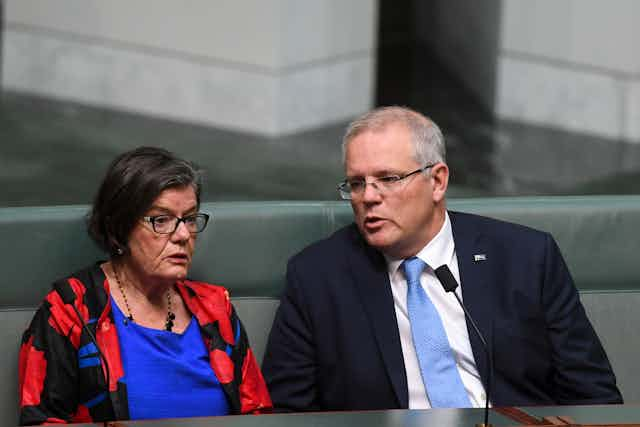The government has finalised the removal of the last children from Nauru, as it battles to head off a parliamentary defeat on legislation to facilitate medical transfers from offshore.
Scott Morrison and Immigration Minister David Coleman said on Sunday: “There are now only four asylum seeker children on Nauru and they have all been approved for departure to the United States of America with their families”.
When parliament rose for its summer break a government filibuster had prevented amendments reaching the House of Representatives that would put medical transfers into the hands of doctors, though with the minister having some oversight on security grounds. The amendments – based on a proposal originally coming from independent Kerryn Phelps and supported by Labor - had been passed by the Senate.
At that time the legislation potentially had enough crossbench backing in the House to pass, but it is not clear whether that will hold when it is put to the test this month. The government is pulling out all stops to peel away crossbench support.
Passage of the measure would be a major blow to the Coalition, although it would not amount to a vote of no confidence. Asked about major defeats in the past, House of Representatives clerks last year had to go as far back as 1929 (which led to an election) and on the 1941 budget (which brought down the Fadden government).
The government has been hopeful that it can persuade independent Cathy McGowan to break ranks with other crossbench supporters of the bill.
McGowan said on Sunday it was good news about the children but she would reserve her position on the legislation until it came before the House, after parliament resumes on Tuesday of next week.
“Indefinite detention needs to be addressed,” she said.
Phelps said the news about the remaining children was “absolutely fantastic” but it was “nowhere near enough”.
Hundreds of people were still languishing on Manus and Nauru and there were “dire reports” about mental health issues, Phelps said.
The proposed change, which would see medical transfers on the basis of the advice of two doctors, would “take medical decisions out of the hands of bureaucrats and politicians – with appropriate ministerial oversight on national security grounds”.
Phelps said she hadn’t seen any evidence of a weakening of crossbench support while parliament has been in recess.
The government on Sunday declined to explain how it has been able arrange for the removal of all the children from Nauru when Home Affairs Minister Peter Dutton last year suggested security issues were a barrier to removing some of them.
Dutton told parliament in October there were 13 children at that time in family groups where there were adults, mostly males “that are the subject of adverse security assessments from the United States.”
At his news conference on Sunday Coleman refused to clarify how these security concerns had been resolved or where the people in question were.
“I can’t go into specific cases but I will say that in each case issues have been worked through to the satisfaction of the Department,” he said.
Asked whether some of the children who had been brought to Australia still had parents on Nauru because of a negative security assessment, Coleman said: “There have been a number of issues that have been worked through – but, no, the family groups are together”.
UPDATE
In a fresh effort to persuade the crossbenchers not to inflict a damaging parliamentary defeat on the government, Scott Morrison has said the government will set up a medical panel to review transfers from Manus and Nauru.
The Medical Transfer Clinical Assurance Panel would be chaired by a nominee of the Commonwealth Chief Medical Officer, and include representatives from Foundation House (which provides services to refugees) and the Australian Medical Association, and two nominees from the Home Affairs department’s Chief Medical Officer.
If a transfer was rejected, the panel would look at the case, and make a recommendation to the minister.
The structure would still leave the ultimate authority at ministerial level.
Phelps told the ABC on Monday the new panel would not solve the problem because bureaucrats would still be making the decisions on transfers, with the review coming later. The process needed to be fast-tracked, she said, maintaining support for the bill that will come to the House.
Coleman said if the bill were passed this would “effectively lead to the end of offshore processing”.

